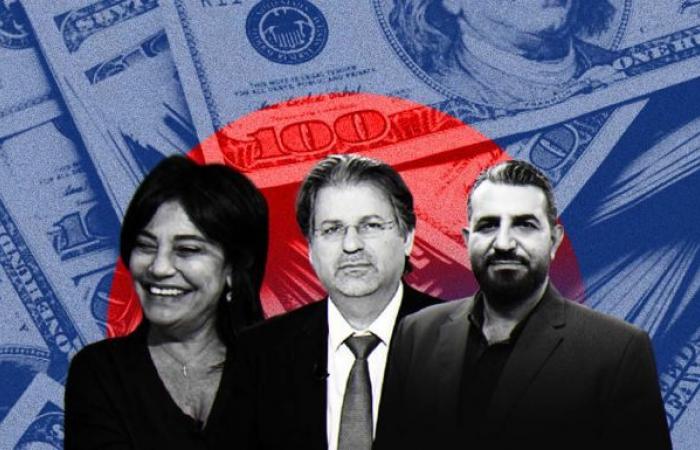Trump’s strong dollar would not be without consequences for the Lebanese economy, already in decline for more than five years. The words of John Connally, former US Treasury Secretary, spoken in 1971, remain as relevant as ever: “The dollar is our currency, but it’s your problem.” Connally was speaking to European officials at the time, as the United States was ending the Bretton Woods system, ending the convertibility of the dollar into gold.
Although the value of the dollar is mainly influenced by internal dynamics in the United States, its fluctuations continue to cause ripples on a global scale. According to an IMF study published in 2023, the negative effects of a strong dollar tend to last around two and a half years in emerging economies, compared to one year for developed countries. The study highlights that a 10% appreciation of the dollar would lead, one year later, to a 1.9% drop in production in emerging economies. Rich countries would suffer a lesser impact, with a decrease of 0.6%.
Stock market euphoria
Economic policies promised by President-elect Donald Trump have left traders speculating that the incoming administration will boost U.S. corporate profits through tax cuts, deregulation and increased government borrowing.
Moreover, the euphoria of the American stock markets and the evolution of the dollar in recent days provide clues as to what could happen during at least part of Trump’s mandate. The Standard & Poor’s 500 index, which includes the largest American companies, set consecutive records on November 6, 7 and 8.
On Tuesday, the euro weakened 0.5% to $1.0596, its lowest level in a year, while the yen fell 0.7% to $154.8. The Canadian dollar fell for the third consecutive day, approaching its lowest level in four years.
Lack of dollars in Lebanon
Interviewed by Ici Beirut, Nicole Ballouz Baker, associate professor at Saint Joseph University (USJ), explains that the optimistic expectations raised by the election of Trump led to an increase in demand for the dollar, which led to his appreciation. For the United States, this means that imports become cheaper, while exports lose competitiveness. On the other hand, for Lebanon, an importing country, the situation is reversed: we are experiencing imported inflation.
According to her, although Lebanon’s economy is largely dollarized, which could theoretically improve our purchasing power, the reality is different. “The economic recession, which reached 50% due to the war, has considerably reduced the inflow of dollars (notably through tourism and investments). Our dollar reserves at the Central Bank are insufficient to cover the costs caused by the war. This will force an increase in the local money supply through the printing of Lebanese pounds, further fueling inflation. A real vicious circle from which it is difficult to escape.”
Weakening of the pound
Asked by Ici Beirut, Jassem Ajaka, economic expert, specifies that in the context of an informal dollarization of the economy, as is the case in Lebanon where the national currency still coexists with the dollar used massively for transactions, the savings or loans, the rise in the value of the greenback inevitably leads to a further weakening of the Lebanese pound. He adds, however, that the current exchange rate of the Lebanese pound against the dollar does not reflect the economic reality of the country. He compares the Lebanese economy to a series of “fictitious knockouts” in a combat sport, where one of the parties seeks to gain time. “In other words, with political, military and financial pressures (registration on the gray list, etc.), the money supply in dollars should be reduced in the more or less long term,” he said, emphasizing elsewhere in this context that “the State uses the dollar even though it does not have real income in this currency”. The Central Bank buys dollars on the market with the pounds it has in its coffers and recovers them thanks to a tax policy which requires taxpayers to pay in cash pounds.
If he considers that for the moment an increase in the value of the dollar on an international level contributes to strengthening the purchasing power of the Lebanese, a reduction in the dollar money supply in circulation would be inevitable in the long term without structural reforms.
According to Jassem Ajaka, the return to the use of the Lebanese pound in the economy would reflect the true economic health of the country as well as the real state of its public institutions. In this case, the national currency would suffer a further depreciation against the dollar.
Injection of dollars by the BDL
As for the economist Mahmoud Jébae, he brings a different perspective on the question. He prefers not to speculate on the effects of a strong dollar on the Lebanese economy, believing that “the rise of the dollar has for the moment a more psychological influence than a truly economic one”.
According to him, the Bank of Lebanon will continue to inject dollars into the market, while banking on an early end to the conflict. Furthermore, he highlights the annual inflow of around 13 billion dollars, resulting from transfers from the diaspora, exports and aid from international non-governmental organizations, which, in his eyes, eliminates any risk of shortage of foreign exchange short term.
Trump would not agree
That said, the rise in the dollar would go against Donald Trump’s wishes, some observers note. He has long complained that a strong dollar hurts domestic manufacturers and costs U.S. jobs, but he cannot easily force the U.S. Federal Reserve (Fed) to lower interest rates. As long as inflation remains high, interest rates will also remain high, and the American currency will remain a preferred safe haven for investors.


